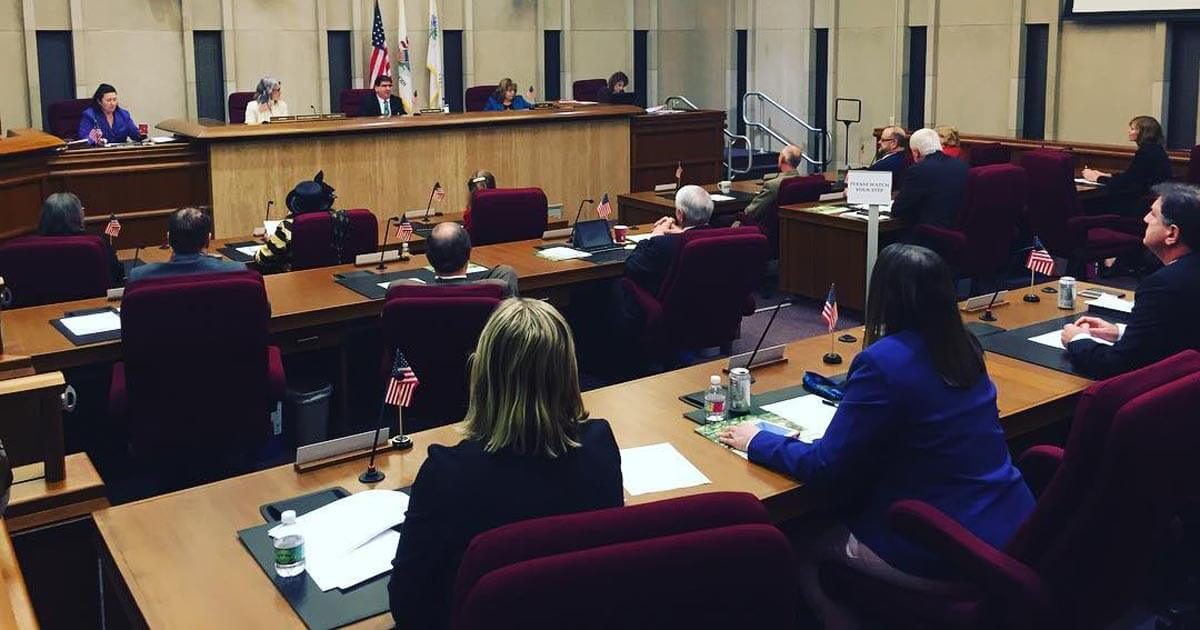The Lake County Board voted mostly along party lines on Tuesday to extend its COVID-19 emergency declaration.
After a brief discussion about whether Lake County expects to need to make additional funding requests to the state of Illinois or the federal government related to pandemic response, the board voted 14-4 in favor of extending the declaration.
District 5 board member J. Kevin Hunter, District 17 board member Michael Danforth, District 19 board member Catherine Sbarra and District 21 member Ann Maine voted against the measure.
Two Democrats and one Republican were absent from the 21-member body.
Should Governor J.B. Pritzker lift the state of Illinois’ declaration of emergency, then the county’s would automatically be lifted as well. The extension lasts until July 12.
District 13 member and board Chair Sandy Hart was advised by county personnel that if the proclamation were to go away, the county would most likely still be able to get needed state or federal resources.
“It does help us locally in requesting assets from the state, for example, personal protective equipment,” Hart said, reading from her correspondence with health department personnel.
The emergency declaration has been in place since March of 2020.
While concluding her Board of Health Report, District 21 board member Ann Maine shared that Lake County is currently one of 32 counties the Illinois Department of Health considers to have “high” community transmission.
As of June 9, Lake County has had more than 139,750 COVID-19 cases, and 1,394 deaths.
Maine pointed out that the other board members were not wearing masks, despite the majority’s support for extending the declaration.
“It’s my decision, (but) I’m the only one down here on the board wearing a mask,” Maine said. “We are at high transmission levels. … It really still kind of begs the question, is (the declaration) necessary?”
Maine reported that nearly 84% of eligible Lake County residents over the age of 5 are fully vaccinated. Maine also alluded to the FDA’s upcoming process to authorize children under 5 to receive the vaccine.
“COVID-19 vaccination remains our best (way to end) the COVID-19 pandemic,” Maine said. “We encourage our residents to explore options for vaccines and boosters.”
Lake County health department Executive Director Mark Pfister also shared some thoughts about monkeypox, which has spread to the United States in recent weeks and has reached Chicago.
Pfister confirmed that a suspected monkeypox case in Lake County came back negative after lab testing over the weekend.
He does expect the county to eventually see cases of monkeypox among its residents.
“So far, most of the cases in the United States are related, as member Maine said, to travel abroad,” Pfister said. “We are expecting that there will be cases in Lake County. Ultimately, this is something we are keeping track of.”
District 11 member Paul Frank pushed back against Maine and Pfister’s description of monkeypox cases as having been primarily discovered among men who’d had intimate contact with other men, stressing the importance of conveying that all people can contract the virus.
“I think it’s very important that we’re very careful with how we describe the cluster of cases that they’ve seen in Europe,” Paul said. “According to the World Health Organization and other scientists, any human being can contract this.”
Frank said that especially during Pride Month in June, it is important to be conscious of stigmatizing the LGBTQ+ community.
Maine clarified that she did not mean that monkeypox could only be contracted by intimate contact between men, and said that public health responses can be targeted to help communities more impacted by certain infections.
“Nobody said that only certain people could get this,” Maine said. “Public health, in order to intervene and to target, looks at groups that are more likely to get something.”

